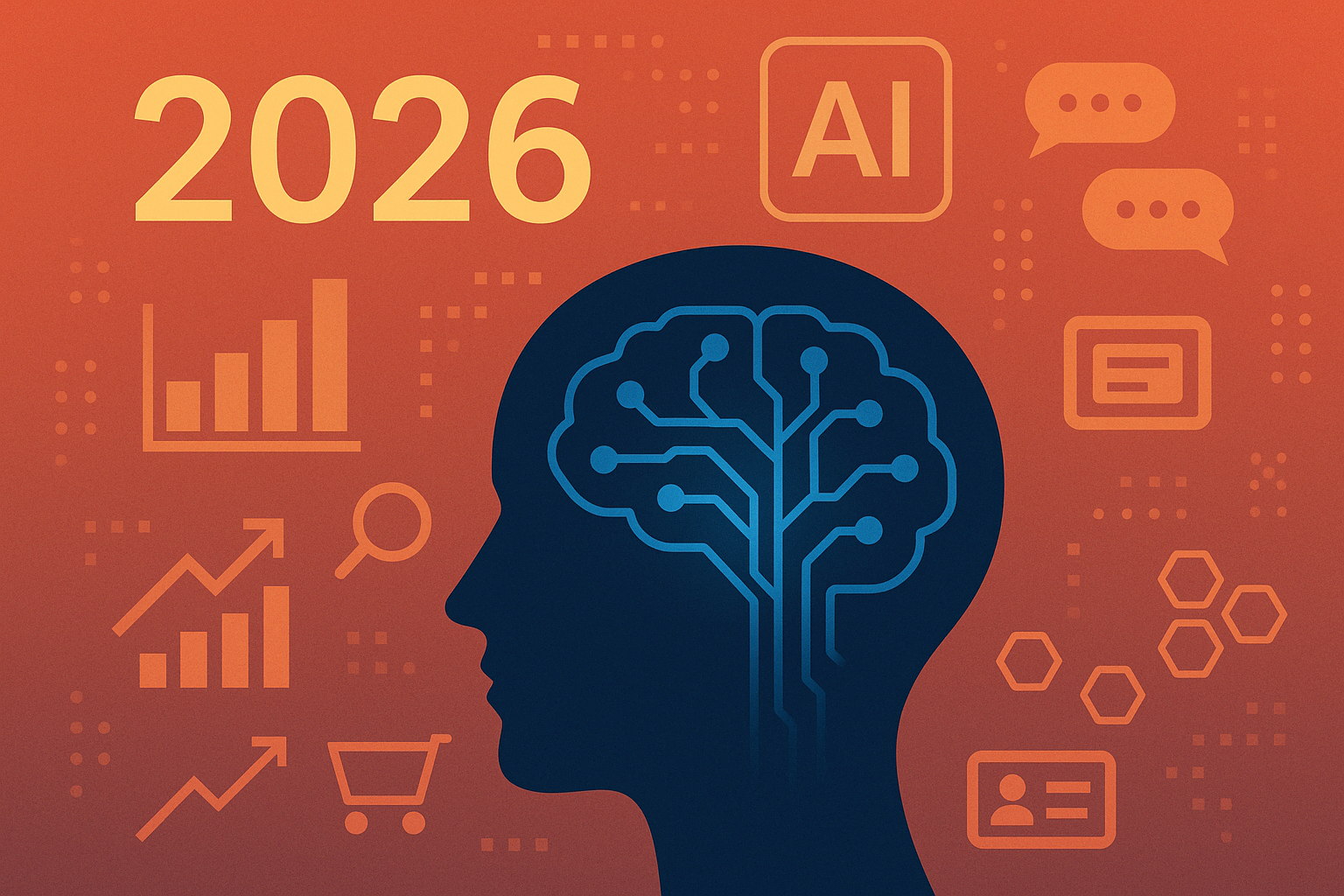Insights
Understanding semantic search: the future of web browsing

You might hearing a new term more and more these days, “Semantic Search.” However, this concept is not just a buzzword, but a significant shift in how search engines understand and respond to user queries. This shift is poised to deliver search results that are more accurate, relevant, and personalized than ever before.
Semantic search is a technology that's reshaping the future of web browsing, and it's crucial for anyone involved in digital marketing or web design to understand it. At Magnet, we are the experts in staying ahead of the latest trends and technologies. Our team is here to confidently guide you through this transition.
Today, we will explore the world of semantic search. We will cover what it is, how it works, and why it is crucial for the future of web browsing. Additionally, we will compare it to traditional keyword-based search and discuss the role of Natural Language Processing (NLP) in semantic search. Let's begin!
Understanding semantic search
So, what exactly is semantic search? In simple terms, semantic search is a method that search engines use to understand the *intent* and contextual meaning of a search query, rather than just focusing on the individual keywords. It's about understanding the why behind a search, not just the what.
For instance, if you search for "apple," a traditional keyword-based search engine might return results about apple fruit, Apple Inc., or apple recipes. But a semantic search engine will consider the context of your search. If you've been searching for tech news, it might prioritize results about Apple Inc. If you've been looking up recipes, it might show you results about apple pies.
Semantic search is a game-changer because it makes search results more relevant and personalized. It understands that words can have different meanings in different contexts, and it uses this understanding to deliver better search results.
Semantic search is powered by technologies like machine learning and natural language processing, which help search engines understand human language and interpret the intent behind search queries. This is a significant departure from traditional keyword-based search, which simply matches keywords in a search query with keywords on a webpage.
The role of natural language processing (NLP) in semantic search
Natural Language Processing, or NLP, is a critical component of semantic search. NLP is a field of artificial intelligence that helps computers understand, interpret, and respond to human language in a valuable way.
So, when it comes to semantic search, NLP lets search engines get what you really mean when you're typing away. It's not just about the words you use, but also how you use them, what you're really trying to find, and even how you're feeling about it all. This understanding allows search engines to deliver more accurate and relevant search results.
For example, consider a search query like "best places to eat near me." NLP allows a search engine to understand that the user is looking for restaurant recommendations in their current location, and it can deliver results accordingly. Without NLP, a search engine might just look for webpages that contain the words "best," "places," "eat," and "near me," which could lead to less relevant results.

Semantic search vs. traditional keyword-based search
When it comes to understanding the power of semantic search, it's helpful to compare it with traditional keyword-based search. The latter has been the standard for search engines for many years, but it has its limitations.
Keyword-based search works by matching the keywords in a user's search query with the keywords on a webpage. So, let's say you're on the hunt for a yummy apple pie recipe. A keyword-based search engine will go out and find websites that have those exact words "apple pie recipe" in them. This approach is straightforward and can deliver accurate results, but it doesn't take into account the context or intent behind a search query.
On the other hand, semantic search goes a step further. Instead of just matching keywords, it tries to understand the intent and contextual meaning behind a search query. It considers factors like the user's location, search history, and the actual meaning of the words in the search query. This allows it to deliver more personalized and relevant results.
For instance, if you search for "how to make apple pie," a semantic search engine understands that you're looking for a recipe, not just any webpage that mentions apple pie. It might even prioritize video tutorials or step-by-step guides in the search results, based on the understanding that you're likely looking for instructions.
Semantic search excels at handling ambiguous queries. For instance, if you search for "jaguar," a keyword-based search engine might not be able to determine whether you are interested in the animal, the car brand, or the Jacksonville Jaguars football team. A semantic search engine, on the other hand, can use your search history and other contextual clues to make an educated guess about what you are really looking for.
Google's evolution to a semantic search engine
Google, the world's largest search engine, has spearheaded the shift towards semantic search. Over the years, Google has introduced several updates and innovations to adopt a more semantic approach to search.
One of the key milestones in Google's evolution was the introduction of the Knowledge Graph in 2012. The Knowledge Graph is a database that stores information about millions of entities, such as people, places, and things, and the relationships between them.. It helps Google understand the context and meaning behind search queries, allowing it to deliver more relevant and detailed search results.
Another significant development was the launch of the Hummingbird update in 2013. This update marked a fundamental change in Google's ranking algorithm. Instead of just matching keywords, Hummingbird was designed to understand the meaning and intent behind search queries. This allowed Google to deliver more accurate results, especially for complex queries and questions.
Google's journey towards becoming a semantic search engine has been facilitated by advancements in technologies like machine learning and natural language processing. These technologies help Google understand human language, interpret the intent behind search queries, and deliver more personalized and relevant search results.
The implications of semantic search for SEO
The rise of semantic search has significant implications for Search Engine Optimization (SEO). In the past, SEO was largely about keyword optimization — using the right keywords in your content, meta tags, and anchor text. But with semantic search, the focus has shifted from keywords to topics and meanings.
This does not mean that keywords are no longer important. They still play a role in helping search engines understand the topic of your content. However, semantic search requires a more holistic approach to SEO. Creating effective content is not just about using the right keywords, but also about providing comprehensive and relevant information that meets the needs of your audience.
One of the critical elements of semantic SEO is the comprehension of user intent. This involves identifying what users are genuinely searching for when they enter a query into a search engine. Are they seeking information? Are they interested in making a purchase? Or are they searching for a particular website? By grasping user intent, you can develop content that directly caters to the requirements of your audience.
Another important aspect of semantic SEO is topical depth. Instead of focusing on individual keywords, you should aim to cover a topic in depth. This helps search engines understand that your content is a valuable resource on a particular topic. It also increases the chances of your content appearing in the search results for related queries.
Semantic SEO also emphasizes the importance of natural language optimization. This involves writing content in a natural, conversational tone that's easy for both humans and search engines to understand. It also involves using related keywords and phrases that help search engines understand the context and meaning of your content.

Practical tips for optimizing your website for semantic search
Now that we understand the importance of semantic search, let's take a look at some practical tips for optimizing your website for semantic search.
- Focus on user intent: Try to understand what your audience is really looking for and create content that meets their needs. Use tools like Google Trends, Keyword Planner, and Answer The Public to research popular queries and topics in your industry.
- Create comprehensive and relevant content: Rather than focusing on individual keywords, aim to cover a topic in depth. This approach not only helps search engines understand your content, but also provides greater value to your audience.
- Use related keywords and phrases: Use synonyms, related terms, and phrases in your content to help search engines understand the context and meaning of your content. This can also help your content appear in the search results for related queries.
- Optimize for natural language: Write content in a natural, conversational tone that's easy for both humans and search engines to understand. Also, consider optimizing your content for voice search, as more and more people are using voice assistants to search the web.
- Use structured data: Structured data is a way of formatting your content so that search engines can better understand it. It can help your content appear in rich search results, like featured snippets and knowledge panels.
Want to see how our team at Magnet tackles optimizing websites? Visit our case studies!
The future of semantic search and its implications.
Moving forward, semantic search is becoming even more sophisticated and integral to how we find information online. With advancements in artificial intelligence and machine learning, search engines are getting better at understanding natural language, context, and user intent.
This evolution of search technology is not just about improving the accuracy of search results. It's also about providing a more personalized and intuitive search experience. For instance, search engines are now able to understand the context of previous searches to provide more relevant results for subsequent queries. They can also use information about the user's location, device, and browsing history to deliver more personalized search results.
For businesses, the evolution of semantic search means that traditional SEO tactics such as keyword stuffing and link farming are no longer effective. Rather, businesses should focus on creating high-quality, relevant, and comprehensive content that addresses the needs of their audience. Additionally, they should optimize their content for natural language and voice search as more and more people are using voice assistants to search the web.
For users, semantic search means a more intuitive and efficient search experience. Instead of sifting through pages of irrelevant results, users can find the information they're looking for more quickly and easily. It also means more personalized search results, as search engines use information about the user's behavior, preferences, and context to deliver more relevant results.
Let Magnet be your guide for the future of search.
Semantic search is revolutionizing the way we find information online. By understanding the context and meaning of search queries, semantic search provides more accurate and relevant results. For businesses, this means a shift in SEO strategies, with a focus on user intent, topical depth, and natural language optimization. For users, it means a more intuitive and personalized search experience.
At Magnet, we understand the importance of staying ahead of the curve in all things in the field of websites and marketing. Our team of SEO experts can help you optimize your website for semantic search, ensuring that your content is not only found but also understood by search engines. Contact us today to learn more about our SEO services and how we can help you navigate the future of search.
Want to see how good your SEO is? Request a free SEO audit here!






































.jpeg)



.jpg)

.jpg)



.jpg)
